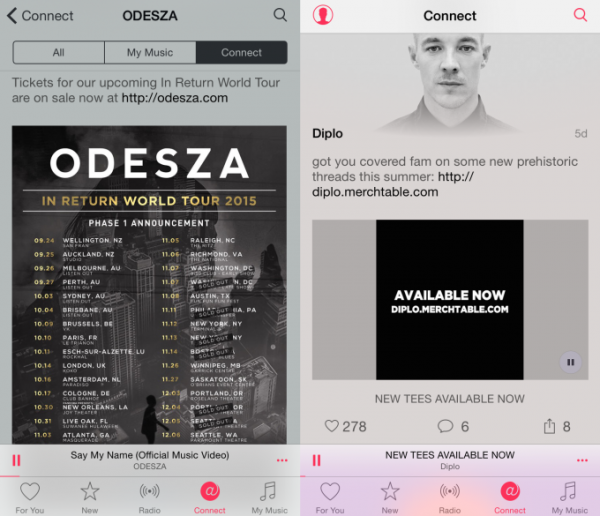New to the Force Touch experience, a user can look up a point of interest in the Maps application, and then Force Touch on the destination to immediately begin turn-by-turn directions. Currently, if a user wants to start navigating to a destination, she must search for the point of interest, click the navigation logo on the map view, then click another button to actually start navigating. In this case, the Force Touch gesture will skip two steps.
In the Music application, a user can Force Touch on a listed track to be presented with some of the most commonly-used actions. For instance, if a user deep presses on the listing for a song, a menu will appear to quickly add the song to a playlist or save it for offline listening. This Force Touch gesture would act as a substitute for clicking the actions button on the right side of each track listing in the Music app.
Another feature in testing, according to one source, are shortcuts that appear after Force Touching an app icon on the Home screen. For example, if a user deep presses on the Phone app icon, he could choose to shortcut directly to the Voicemail tab. This could also apply to deep pressing the News app icon and being taken directly to either the Favorites or For You tabs.
Some of the Force Touch gestures will come from Apple’s latest MacBooks. For instance, a user can Force Touch a link in Safari to see a preview of that webpage. The gesture also works for deep pressing on an address or contact name to see a preview of a map view or contact card, respectively. Similarly, a user can Force Touch a word to look up its definition.
A very welcomed feature for iPhone to make it easier for small hands to navigate large touchscreens.
